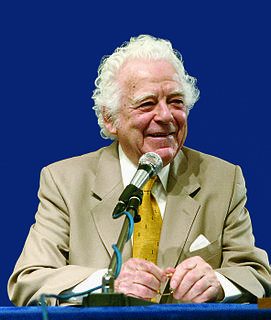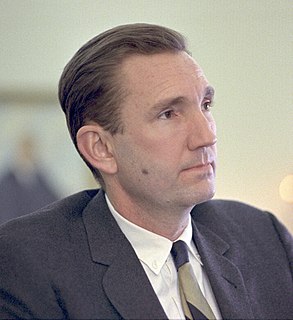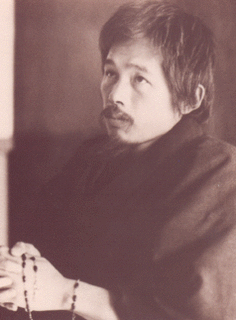A Quote by Albert Einstein
Nor do I take into account a danger of starting a chain reaction of a scope great enough to
destroy part or all of the planet...But it is not necessary to imagine the earth being destroyed like a nova by a stellar explosion to understand vividly the grow ing scope of atomic war and to recognize that unless another war is prevented it is likely to bring destruction on a scale never before held possible, and even now hardly conceived, and that little civilization would survive it.
Quote Topics
Account
Another
Atomic
Atomic War
Before
Being
Bring
Chain
Civilization
Conceived
Danger
Destroy
Destroyed
Destruction
Earth
Enough
Even
Even Now
Explosion
Great
Grow
Hardly
Held
Imagine
Like
Likely
Little
Necessary
Never
Nor
Nova
Now
Part
Planet
Possible
Reaction
Recognize
Scale
Scope
Starting
Stellar
Survive
Take
Understand
Unless
Vividly
War
Would
Related Quotes
When we blew the first atomic bomb at White Sands near the end of the war, nobody knew what was going to happen. There was a theory that the chain reaction would continue forever. And we would have created a little tiny sun out there in the desert that would burn until the end of the universe. It wasn't a widely held theory but it was a theory that nobody had a way of disproving. There were people who thought it wouldn't go off at all, that it would simply sit out there and melt and produce a great big dirty cloud of radioactivity. Nobody knew.
Japan suffered terribly from the atomic bomb but never adopted a pose of moral superiority, implying: 'We would never have done it!' The Japanese know perfectly well they would have used it had they had it. They accept the idea that war is war; they give no quarter and accept none. Total war, they recognize, knows no Queensberry Rules. If you develop a devastating new weapon during a total war, you use it; you do not put it into the War Museum.
In time, [a Martian] colony would grow to the point of being self- sustaining. When this stage was reached, humanity would have a precious insurance policy against catastrophe at home. During the next millennium there is a significant chance that civilization on Earth will be destroyed by an asteroid, a killer plague or a global war. A Martian colony could keep the flame of civilization and culture alive until Earth could be reverse-colonized from Mars.
War happens to people, one by one. That is really all I have to say and it seems to me I have been saying it forever. Unless they are immediate victims, the majority of mankind behaves as if war was an act of God which could not be prevented; or they behave as if war elsewhere was none of their business. It would be a bitter cosmic joke if we destroy ourselves due to atrophy of the imagination.
And do you know what a full-fledged war would look like, Percy?" "Bad?" I guessed. "Imagine the world in chaos. Nature at war with itself. Olympians forced to choose sides between Zeus amd Poseidon. Destruction. Carnage. Millions dead. Western civilization turned into a battleground so big it will make the Trojan War look like a water-balloon fight." "Bad," I repeated.
It has never happened in history that a nation that has won a war has been held accountable for atrocities committed in preparing for and waging that war. We intend to make this one different. What took place was the use of technological material to destroy a defenseless country. From 125,000 to 300,000 people were killed... We recognize our role in history is to bring the transgressors to justice.
So far as we know, Earth is the only planet which supports life, and it is the only planet on which we can survive. Our bodies and our minds are fashioned by it. Our hearts resonate with it. There will be little joy for the human spirit if we destroy the natural fabric of Earth with nothing left to do but go shopping. When we imagine the world a century from now, when we look our great grandchildren in the eye and see them smiling back at us because they know we cared for them, we smile too!
An aggressive war is the great crime against everything good in the world. A defensive war, which must necessarily turn to aggressive at the earliest moment, is the necessary great counter-crime. But never think that war, no matter how necessary, nor how justified, is not a crime. Ask the infantry and ask the dead.
Men and women of the world, never again plan war! With this atomic bomb, war can only mean suicide for the human race. From this atomic waste the people of Nagasaki confront the world and cry out: No more war! Let us follow the commandment of love and work together. The people of Nagasaki prostrate themselves before God and pray: Grant that Nagasaki may be the last atomic wilderness in the history of the world.
In America, it was decided to attempt the production of atomic bombs with an effort that would constitute a large part of the collective American war effort. In Germany, an effort one thousandth the scale of the American was applied to the problem of producing atomic energy that would drive engines.




































